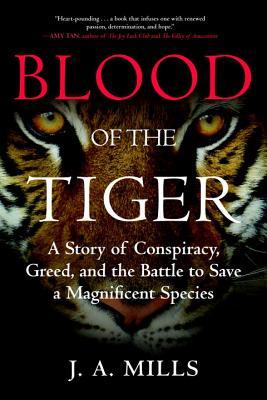
In this nonfiction memoir, Mills recounts her struggles and triumphs in the international wildlife conservation field. Mills takes us on her exciting, heartfelt and emotional journey into the underbelly of wildlife trade. While I have some knowledge of the wildlife trade, I was not aware of all of the major players and their deep rooted interests in the trade. As Mills dives further into trade, I was surprised at the risks she took in order to find out the truth behind what was going on. I was also surprised at the major players, their motivations and the amount of money animal trade brought in. I admired Mills tactics on befriending some of the players within the trade and getting the people of China on her side. While focused in Asia, Mills also explores a bit of wild animal trade in the USA. In some instances, the USA is contradictory in policy for other countries and what it allows in it's own borders. Mills also visits Carole Baskin's Big Cat Rescue and remarks on the man we know as Joe Exotic. Written six years ago, Blood of the Tiger is just the beginning of the tiger's struggles and what people have done to stop wildlife trade. While there have been significant strides during this time, wildlife trade is unfortunately still an issue. Reading this during COVID creates an even stronger plea to end wildlife trafficking as China's bushmeat trade is the likely cause of the outbreak.
This book was received for free in return for an honest review.
 RSS Feed
RSS Feed
